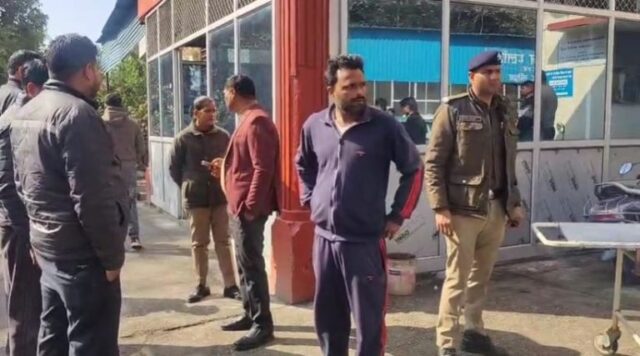It is a myth that ‘Judges are appointed by judges’: CJI Ramana

Chief Justice of India (CJI) N V Ramana on Sunday said the notion that “judges are the judges appointees” is a myth as the judiciary is just one of the many stakeholders involved in the process of appointment of judicial officers. Is. Justice Ramana said this while speaking on the topic ‘Indian Judiciary – Challenges of the Future’ at the fifth Sri Lavu Venkatevarlu Charitable Lecture at Siddhartha Law College, Vijayawada.
The CJI said physical attacks on judicial officers have increased in recent times and at times some parties campaign against judges in print and social media and these attacks appear to be “sponsored and synchronized”.
There is a need to make the institution of Public Prosecutors independent, he said. He said that they should be given complete freedom and they need to be made accountable only to the courts.
Justice Ramana said, “These days it has become a practice to repeat the jumlas like “the judges themselves are appointing the judges”. I believe this is one of the widely spread myths. The fact remains that the judiciary is just one of the many stakeholders involved in the process.
It is noteworthy that recently, Kerala MP John Brittas, during a discussion on the High and Supreme Court Judges (Salary and Conditions of Service) Amendment Bill-2021, had reportedly said in Parliament that the matter of appointing judges of judges is the world’s only. Can’t be heard anywhere.
Justice Ramana said, “Many authorities are involved in this process, including the Union Law Ministry, the State Government, the Governor, the High Court Collegium, the Intelligence Bureau and finally the executive at the top, whose responsibility is to judge the eligibility of the candidate.” . I am saddened to see that even a knowledgeable person is spreading this notion. After all, this plot suits a section.
Praising the central government for trying to appoint more judges, he said some names recommended by the high courts are still to be sent to the Supreme Court by the Union Law Ministry. He expressed hope that the government would comply with the deadline set in the Malik Mazhar case.
The CJI said that law enforcement agencies, especially specialized agencies, must deal with malicious attacks on the judiciary. He said that it is unfortunate that the authorities usually do not initiate the process of inquiry until the court intervenes and passes an order.
“The government is expected and it is their duty to create a safe environment so that judges and judicial officers can work without fear,” Justice Ramana said.
He said that the new media has a huge potential to spread information but it seems to be unable to differentiate between right and wrong, good and bad, real and fake. There should not be a fact guiding the ‘media trial’ in deciding the cases.
He said that historically in India, prosecutors have been under the control of the government. The CJI said, “Therefore it is no surprise that they do not act independently. They do nothing to prevent weak and useless cases from reaching the courts. Public prosecutors, without exercising their discretion, automatically oppose the bail application. They suppress the facts during the trial so that the accused gets its benefit.
He suggested that there is a need to work for a radical change in the entire process. To protect public prosecutors from outside influence, an independent selection committee can be constituted for their appointment. The best approach should be adopted by making a comparative study of other jurisdictions.
The CJI said that while enacting a law, the law makers should also think of effective solutions to the problems arising out of it and it seems that this principle is being ignored.
He cited the Bihar Prohibition Act, 2016, which led to a flood of bail applications in the High Court. The CJI said that lack of foresight in making laws can directly lead to obstruction of courts.






